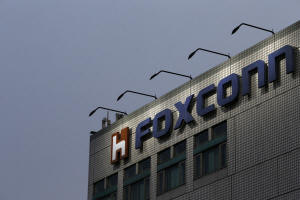|
Production of Apple iPhones faced disruption ahead of Christmas
and January's Lunar New Year holidays, after curbs to control
COVID-19 prompted thousands of workers to leave Foxconn's
factory lines in China's Zhengzhou city.
Although lower compared with the previous year, the company said
revenue for December was better than it expected and that a
"gradual recovery" at its Zhengzhou plant had contributed to
"double-digit growth" in revenue for its smart consumer
electronics business compared to November.
A Foxconn source familiar with the matter, who could not be
named because they were not authorised to speak to the press,
said the growth in December compared to the month prior for its
consumer electronics business, including smartphones, showed
major client Apple did not cut orders.
A high base from a year earlier, when demand for smartphones
revived after the early impact of the pandemic, also led to the
yearly decline in revenue, the person added.
Revenue for 2022 rose 10.47% from the previous year to a record
high, driven by growth across major product lines from
smartphones to servers, the company said.
In the fourth quarter, the Zhengzhou plant grappled with strict
COVID-19 restrictions, now being eased, that fuelled discontent
among workers over conditions at the factory. It was also hit by
worker unrest over pay.
Foxconn has offered bonuses to attract new workers and convince
others to stay on.
A company source told Reuters last month it aimed for the plant
to resume full production around late December-to-early January.
Analysts say Foxconn assembles around 70% of iPhones, and the
Zhengzhou plant produces the majority of its premium models
including iPhone 14 Pro.
The company said in Thursday's statement it expects
first-quarter revenue "to be roughly in line with market
consensus," without elaborating.
Analysts expect first-quarter revenue to grow by 5.6%
year-on-year, according to Refinitiv.
Foxconn shares closed down 0.1%, below the broader market which
ended up 0.72%.
(Reporting by Sarah Wu and Yimou Lee; Editing by Christopher
Cushing, Emelia Sithole-Matarise and Barbara Lewis)
[© 2023 Thomson Reuters. All rights
reserved.]
This material may not be published,
broadcast, rewritten or redistributed.
Thompson Reuters is solely responsible for this content.

|
|





